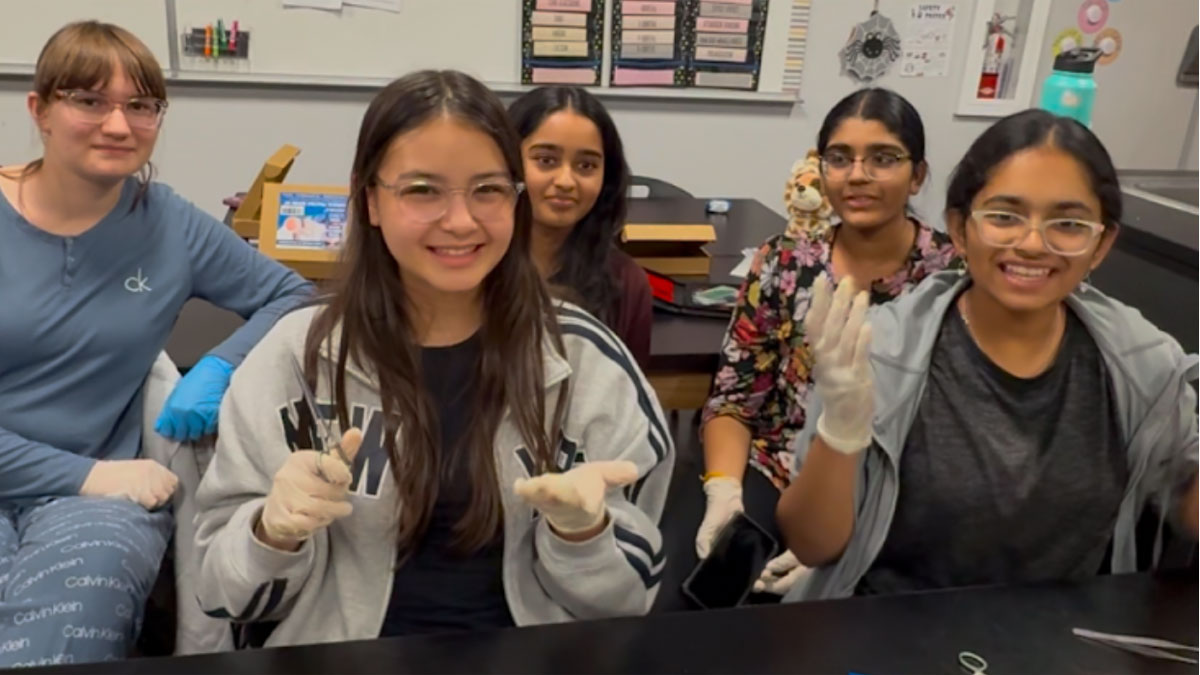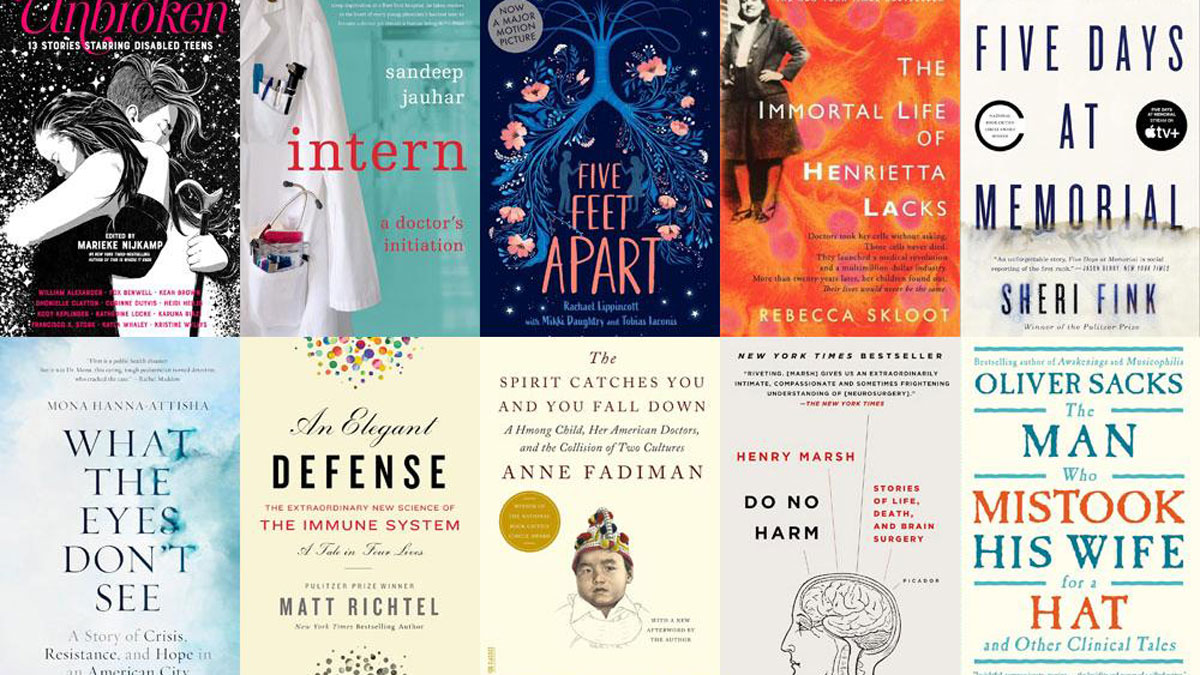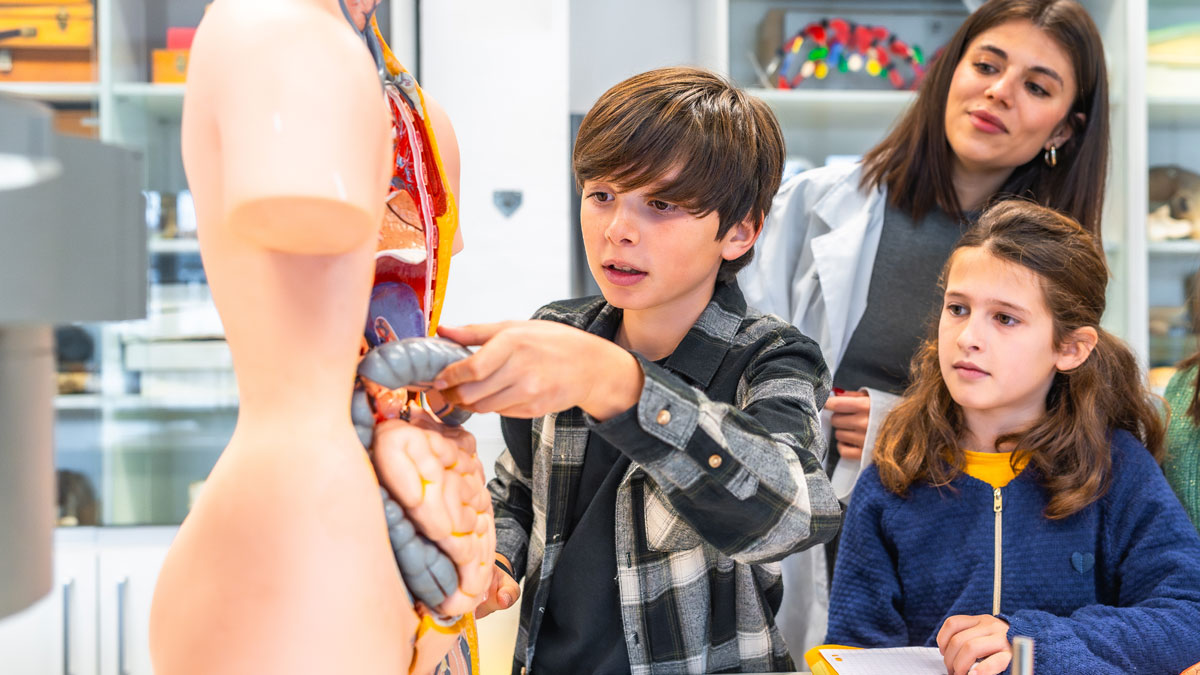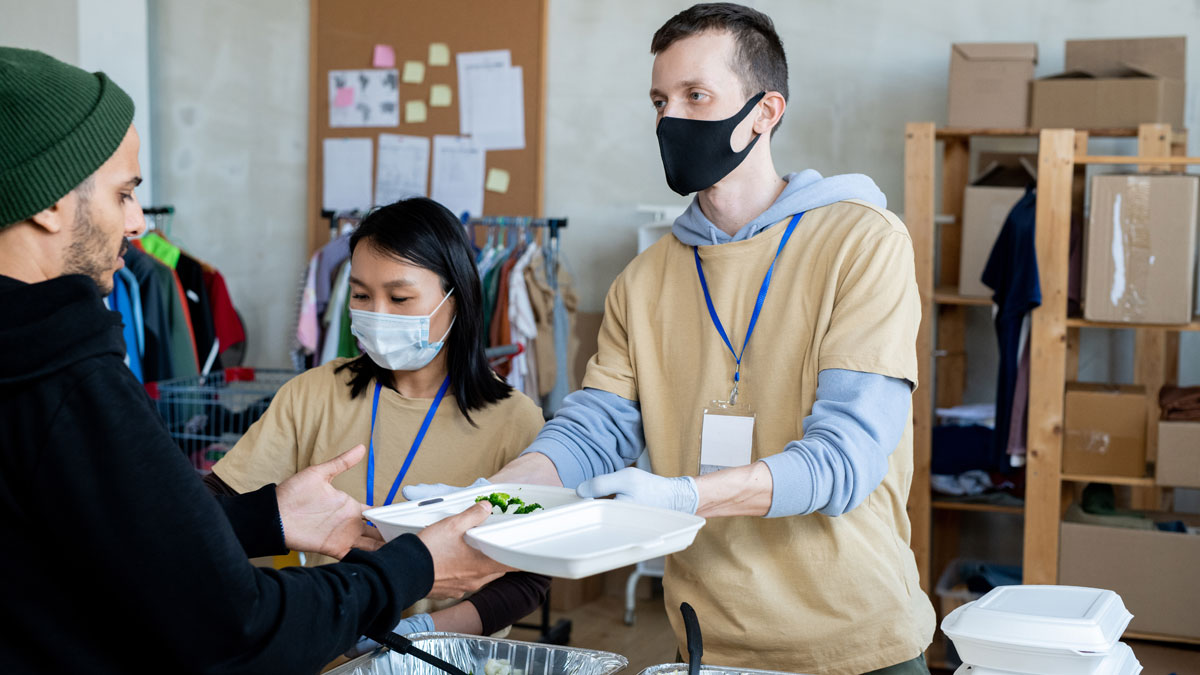How to Acquire Volunteering & Shadowing Experience as a High School Student

Dr. Hillary Weiss

High school is the perfect time to start exploring the medical field, and if you’re wondering how to get medical experience as a high school student, we can tell you two activities that are always useful to pre-med (or maybe you’d be considered pre-pre-med) students: volunteering and shadowing.
These opportunities—particularly volunteering in your local community and online shadowing—are available across the U.S. and Canada, whereas a few of our HSAFP chapter presidents have shared that research opportunities and in-person shadowing can be hard to find, especially for students under 16 years old.
Let us explain why these experiences are important if you want to pursue medicine, provide you with some free online shadowing, and detail how to find shadowing and volunteering opportunities.
Why Gaining Medical Experience in High School Matters
Getting exposure to medicine early on has many benefits for aspiring doctors and healthcare professionals. Shadowing, which is observing a healthcare professional at work, and volunteering in different settings with diverse people both allow you to:
- Explore Your Interests: You get a firsthand look at what different healthcare careers are like. Watching a physician interact with patients or volunteering in a senior living center or homeless shelter can help you figure out what about medicine that truly excites and fulfills you.
- Gain Knowledge and Skills: By being in clinics, hospitals, or community health centers, you’ll pick up basic medical terminology, protocols, and the different roles in a healthcare team. You’ll also develop important soft skills like communication, cultural awareness, empathy and compassion, and collaborative problem-solving. For more about interacting with patients, see “Connect With the Patient Behind the Disease.”
- Build Confidence and Comfort: Hospitals and clinics can feel overwhelming at first. Early experience in these environments makes them more familiar and helps build your confidence for future active roles!
- Strengthen Your College Applications: Admissions officers love to see students who pursue their interests outside the classroom. These experiences can also be strong examples to discuss in college essays or interviews.
- Network and Find Mentors: When you shadow physicians and volunteer, you meet professionals who can offer advice or, if you are an active participant, write you a letter of recommendation. You might also connect with other students through programs like HSAFP.
How to Shadow a Doctor as a High School Student
- Start with Virtual Shadowing: To learn more about specialties, you can start with the MedSchoolCoach virtual shadowing program. Virtual shadowing is also an excellent alternative if you cannot find any face-to-face opportunities.
- Ask People You Know: Ask your parents, relatives, family friends, and teachers if they know any doctors or nurses who might allow you to shadow. Your family doctor or pediatrician may be open to it.
- Ask Your School and Counselors: Some schools have programs or connections to help students shadow. Let your counselor know you’re looking for a high school shadowing program for future doctors.
- Reach Out to Local Hospitals and Clinics: Look up hospitals, clinics, or physician offices and call or email their office manager or volunteer coordinator. Here’s a brief summary of what you can say/email:
- Introduce yourself: as a high school student interested in a medical career.
- Briefly explain: why you’d like to shadow and any specific interests.
- Be respectful and professional. Be kind and helpful to all, follow the rules and expectations of the institution, and dress professionally yet comfortably.
- Follow up: Wait a week or two if you don’t receive a reply; many places are busy and may not respond immediately.
- Introduce yourself: as a high school student interested in a medical career.
- Consider Healthcare Programs and Networks: Some hospitals offer student observer programs or summer intensives. HSAFP chapters may also help arrange shadowing or physician Q&A events. Join or start an HSAFP chapter.
- Be Mindful of Rules and Prepare Paperwork: Hospitals may require proof of immunizations or consent forms for minors. Confirm what you need before you start shadowing.
How to Find Teen Healthcare Volunteer Programs
Volunteering in healthcare gives you hands-on experience while helping others. Unlike shadowing, which is mostly observation, volunteers are actively assisting.
- Check Your Local Hospital: Many have junior volunteer programs with summer or year-round options. You’ll want to visit the hospital website for volunteering opportunities or call their volunteer department.
- Explore Clinics, Nursing Homes, and Offices: Local healthcare providers and community clinics may allow teens to help with basic tasks or community outreach.
- Join Community Health Organizations or EMT Programs: Groups like the Red Cross and sometimes local fire departments have teen-friendly volunteer programs that may involve health education, hands-on patient experiences, event support, or administrative help.
- School and Club Initiatives: Your school might have clubs that organize community health events or volunteer days. If not, you can start a new club or chapter of HSAFP.
- Apply and Follow Through: Most programs require a formal application, references, and sometimes a short essay. Be sure to follow instructions and meet deadlines.
Tips to Succeed in Your Shadowing or Volunteering Experience
- Be Professional and Punctual: Show up on time, dress neatly, and follow instructions. Good or bad, first impressions do tend to matter.
- Follow Rules and Respect Privacy: Never discuss patient information outside the facility, and please always ask if you’re unsure about a rule.
- Show Enthusiasm and Eagerness to Learn: Be polite, listen actively, and ask thoughtful questions at appropriate times.
- Observe and Take Mental Notes: Reflect after each experience on what you saw and learned. We suggest keeping a journal so you can come back to these experiences!
- Help Out and Stay Engaged: Offer help when appropriate. Even small tasks, like delivering forms or organizing supplies, are important!
- Be Grateful and Keep in Touch: Thank your supervisor or mentor with a short note or message. If you build a connection, stay in touch for future guidance.
Whether through volunteering in your community, shadowing a local doctor, or participating in online programs, these experiences are powerful stepping stones to your future in healthcare. You’ll build skills, gain confidence, and take meaningful steps toward your dream of becoming a healthcare professional.

The High School Alliance of Future Physicians
For more….
Start or join an HSAFP chapter at your school today for volunteering and shadowing opportunities!
Recent Articles






